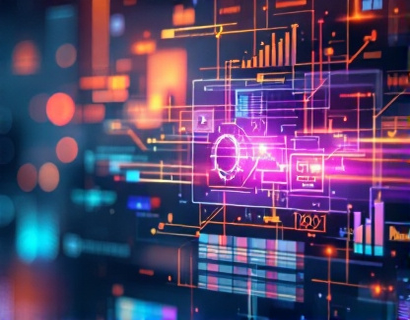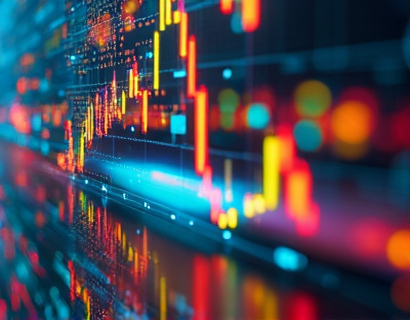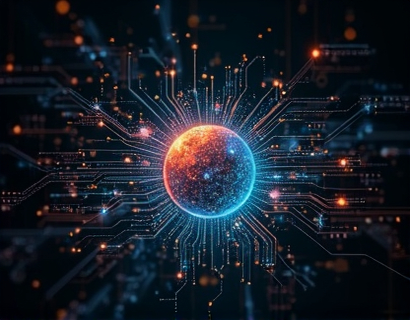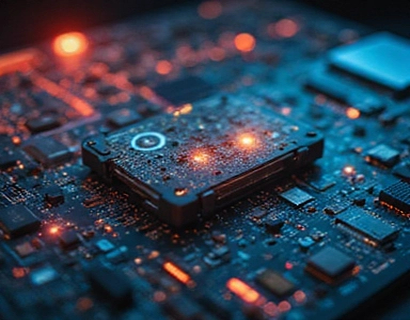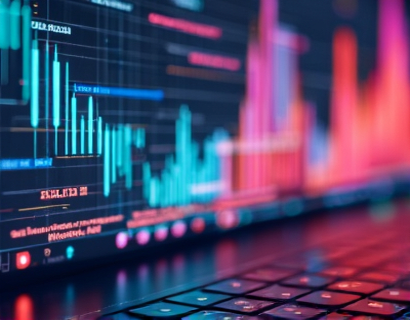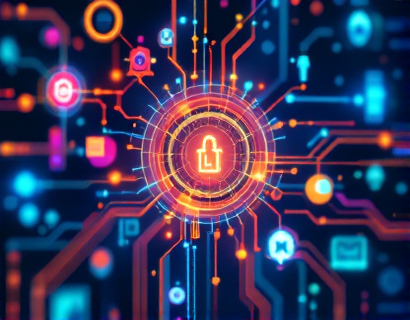AI and Crypto Synergy: Revolutionizing Digital Finance with Intelligent Solutions for the Future
The intersection of artificial intelligence (AI) and cryptocurrency is giving rise to a new era in digital finance, one that promises to be more efficient, secure, and accessible than ever before. This synergy is not just a buzzword but a transformative force that is reshaping the financial landscape. As we delve into this topic, we will explore the various ways AI is enhancing the crypto ecosystem, from improving security and transaction efficiency to enabling innovative financial products and services. This article aims to provide a comprehensive overview for tech enthusiasts and innovators, offering insights into the FinTech solutions that are setting the stage for a smarter future.
The integration of AI in the crypto space is multifaceted, impacting nearly every aspect of digital finance. One of the most significant contributions of AI is in the realm of security. Cryptocurrencies, by their nature, are decentralized and rely on blockchain technology for transparency and immutability. However, the decentralized nature also makes them vulnerable to various attacks. AI algorithms can analyze patterns and detect anomalies in real-time, enhancing the security of crypto assets. Machine learning models can identify suspicious activities and potential threats, allowing for proactive measures to protect user funds and maintain the integrity of the blockchain.
Another critical area where AI is making a substantial impact is in transaction efficiency. Traditional financial systems often suffer from slow transaction times and high fees, especially in cross-border payments. Cryptocurrencies, with their promise of instant and low-cost transactions, address some of these issues. AI can further optimize this process by predicting transaction patterns and adjusting network parameters to handle peak loads efficiently. Smart contracts, self-executing contracts with the terms directly written into code, can be enhanced with AI to automate complex financial processes, reducing the need for intermediaries and lowering transaction costs.
The use of AI in crypto extends to the realm of trading and investment. Algorithmic trading, powered by AI, can analyze vast amounts of data to identify trends and make informed trading decisions. These AI-driven trading bots can operate 24/7, executing trades based on predefined strategies and adapting to market conditions in real-time. This not only increases the potential for higher returns but also reduces the emotional bias that often affects human traders. Moreover, AI can provide personalized investment recommendations by analyzing a user's risk tolerance, investment goals, and market data, offering a more tailored approach to crypto investing.
Beyond security and trading, AI is revolutionizing the way crypto projects are developed and managed. The creation of decentralized applications (dApps) and smart contracts requires sophisticated coding and testing to ensure reliability and security. AI tools can automate the development process, detecting potential bugs and optimizing code performance. Project management in the crypto space is also streamlined with AI, which can predict project timelines, resource allocation, and risk factors, ensuring that projects stay on track and within budget.
The financial inclusion aspect of the crypto-AI synergy cannot be overlooked. Traditional banking systems often exclude large segments of the population due to stringent requirements and high costs. Cryptocurrencies, combined with AI-driven solutions, can provide financial services to the unbanked and underbanked. AI-powered identity verification systems can authenticate users without the need for extensive documentation, making it easier for individuals in remote or underserved areas to access financial services. Additionally, AI can help in designing financial products that cater to the specific needs of these communities, such as microloans and insurance products tailored to local conditions.
Another exciting development is the use of AI in market analysis and prediction. The crypto market is notoriously volatile, making it challenging for investors to make informed decisions. AI algorithms can process and analyze vast amounts of data from various sources, including social media, news articles, and market trends, to predict price movements. These predictions can be invaluable for investors looking to capitalize on market opportunities or hedge against potential losses. Furthermore, AI can help in creating more stable cryptocurrencies, known as stablecoins, by dynamically adjusting their value based on market conditions, reducing volatility and enhancing their utility as a store of value.
The role of AI in enhancing user experience in the crypto space is also noteworthy. User interfaces for crypto platforms can be significantly improved with AI-driven personalization. By analyzing user behavior and preferences, AI can tailor the user interface to provide a more intuitive and efficient experience. Chatbots and virtual assistants powered by AI can offer real-time support, answering queries and guiding users through complex processes. This not only enhances user satisfaction but also reduces the burden on human support teams, allowing for more efficient service delivery.
Looking ahead, the future of AI and crypto synergy holds even more promise. As AI technologies continue to advance, we can expect even more sophisticated applications in the crypto space. One area of potential growth is in the development of decentralized AI models. These models can run on decentralized networks, ensuring that AI capabilities are accessible to all participants in the ecosystem without the need for centralized control. This could lead to more democratic and resilient AI systems, further empowering the decentralized nature of cryptocurrencies.
Another frontier is the integration of AI with other emerging technologies such as the Internet of Things (IoT) and 5G networks. The combination of these technologies can create a seamless and highly interconnected financial ecosystem. For instance, IoT devices can generate real-time data that AI can analyze to make instant financial decisions, such as automating trades based on sensor inputs. 5G networks can facilitate faster and more reliable data transmission, enabling real-time AI-driven financial services across the globe.
In conclusion, the synergy between AI and cryptocurrency is revolutionizing digital finance by enhancing security, transaction efficiency, trading, project management, financial inclusion, market analysis, and user experience. As these technologies continue to evolve, we can expect even more innovative solutions that will shape the future of finance. For tech enthusiasts and innovators, this is an exciting time to be at the forefront of this transformation, leveraging the power of AI and crypto to build a smarter, more inclusive financial world.



